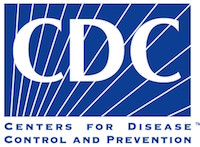
Unlike the arthritis we are all familiar with, septic arthritis is the inflammation of a bodily joint that occurs as the result of an infection. Generally caused by bacteria, septic arthritis is also known by the more accurately descriptive name of infectious arthritis. As a general rule, septic arthritis will set into a large joint in the body like a knee or hip. This infection can then begin to damage the surrounding bone and tissues and, if left untreated, can develop into septic shock. Septic shock can be fatal.
The spread of the septic arthritis infection in the New Jersey practice was aggressive. An investigation concluded that all affected patients had been given injections by the same physician. They had been seen by that physician over the same three-day span and 92% of them showed symptoms of infection within 48 hours. 73% of them required surgery to treat the infection.
The practice was a veritable cesspool of bacteria. Patient cultures came back positive for everything from Streptococcus to Staphylococcus. And, once an investigation into the practice was conducted, it wasn’t hard to figure out why.
While hand hygiene forms the foundation of any infection control effort in the medical community, this practice lacked something as basic as a handwashing sink. Personnel tasked with handling medical supplies were inappropriately clothed to do so and had not received proper training. The injecting physician was not wearing a face mask when positioning syringes during procedures and would go so far as to use non-sterile gloves when working with patients.
The practice voluntarily ceased operation once it became apparent that it was responsible for a potentially fatal infection outbreak. Inspectors from the CDC advised the practice to immediately begin following infection prevention protocols and to hire a specialist trained in preventing infections. Once the protocols were implemented, the facility reopened its doors. No further infections have been reported.
